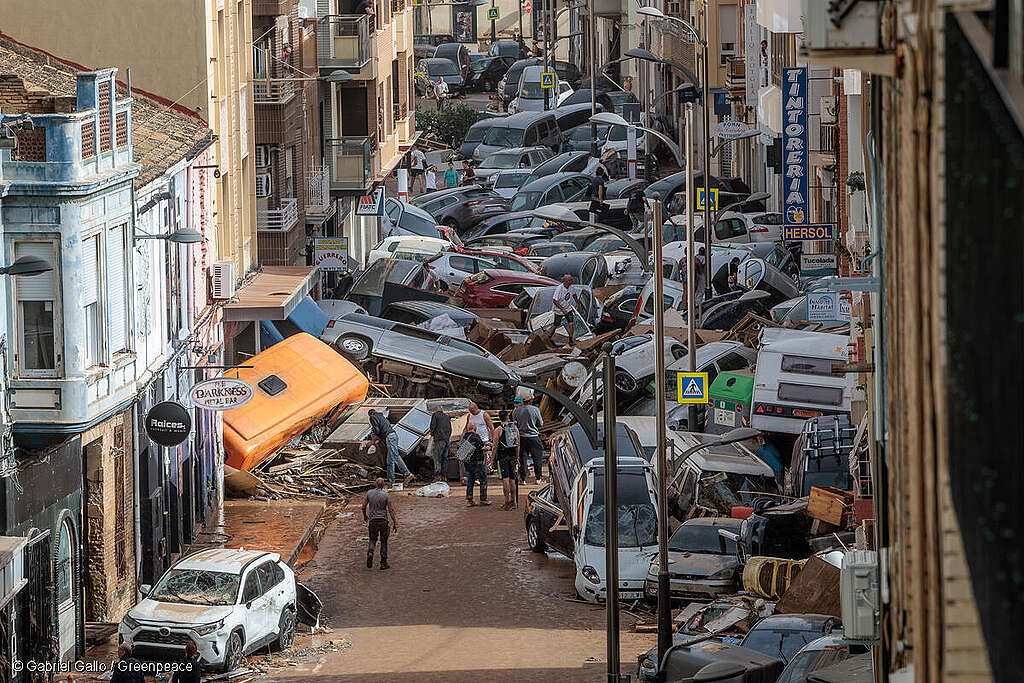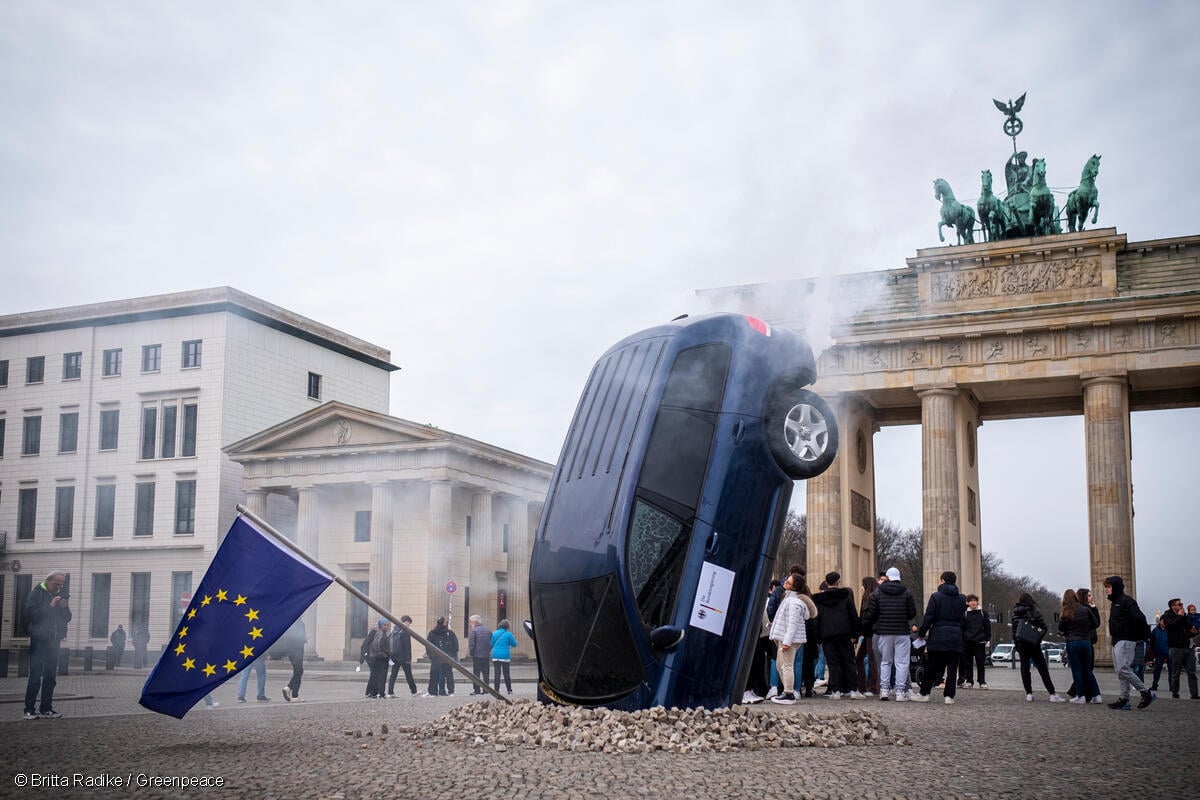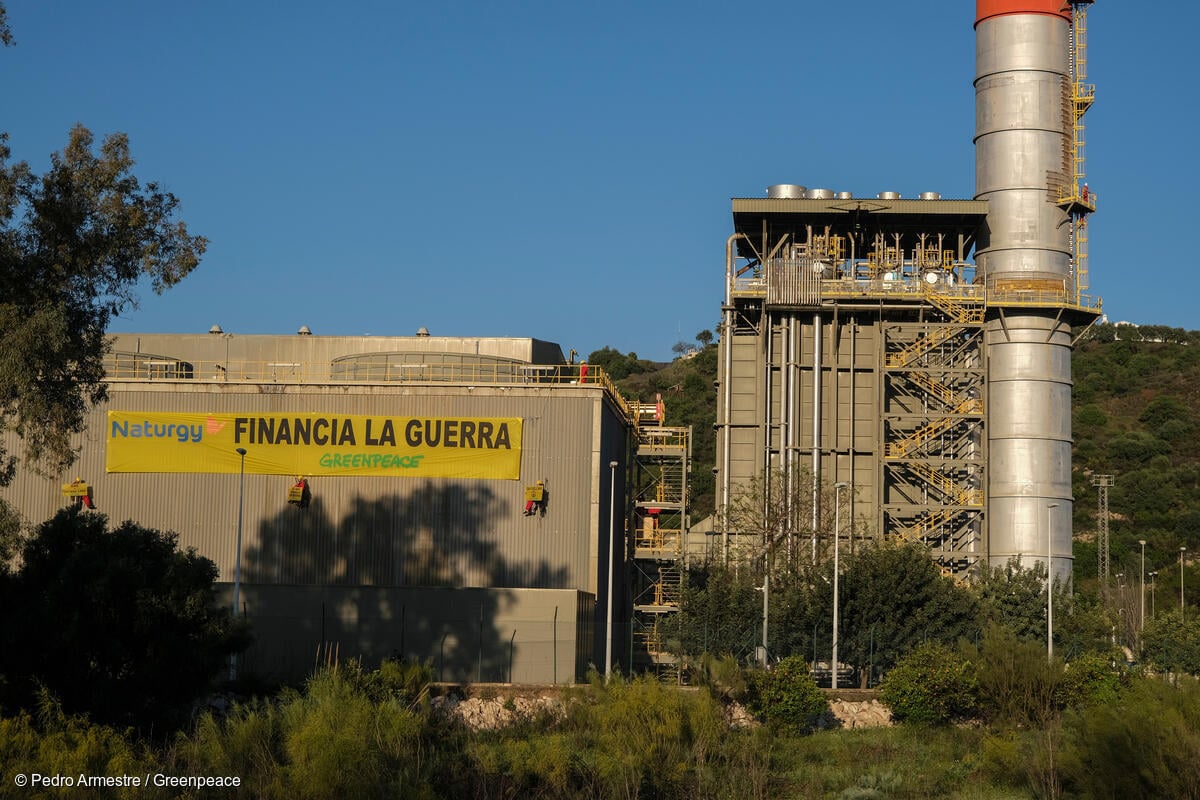
(This is a translation of an article in Spanish that originally appeared on Greenpeace Spain’s website here on 31 October)
The spread of misinformation at moments of crisis can pose serious risks to people’s safety. It is important to debunk some of the false claims circulating recently in the wake of the flooding as a result of the extreme rainfall in Spain (known in Spanish as DANA, Depresión Aislada en Niveles Altos).
Scientists have been warning society for years: the climate crisis will cause extreme weather events to become more frequent and intense, and Spain is one of the countries that will suffer the most from its effects. Greenpeace is demanding measures to address the real causes of this tragedy: an urgent move away from fossil fuels, the main drivers of climate breakdown.
Greenpeace continues to monitor the aftermath of the extreme rainfall and flooding, which has impacted a significant portion of the country, we are deeply saddened by the loss of life and the extensive damage caused.
In catastrophes like this, the priority must remain saving lives. Amid the confusion caused by this extreme weather phenomenon, Greenpeace denounces the spread of fake information that hinders both rescue efforts and the implementation of solutions to reduce the risks and impacts of future events such as this one.
Our team of experts is debunking some of the disinformation circulating. Our aim is to contribute to the creation of real, verified information as a public service in this time of crisis and grief.
False claims we have seen, and how to respond to them:
1. This type of weather event has always occurred, it’s nothing new, and it has nothing to do with climate change.
Extreme weather events are part of the climate. Climate change does not create new weather phenomena, but exacerbates those that already occur in some areas, and in some cases, causes them to occur in regions where they previously did not. According to the IPCC (Intergovernmental Panel on Climate Change), extreme weather events will worsen with each incremental rise in global average temperatures.
The primary reason for the increasing severity of extreme weather events is that greenhouse gases warm the lower layers of the atmosphere and trap more moisture, which increases the intensity of extreme rainfall and heatwaves. The concentration of greenhouse gases in the atmosphere is at its highest level in human history, due mainly to rising emissions from burning fossil fuels.
In Spain, projections indicate that rainfall will become more scarce and concentrated in events with high precipitation.
2. Flooding is caused by the destruction of dams, reservoirs, and weirs.
One of the most widely spread fake claims relates to the alleged demolition of dams and reservoirs. This claim is not new; it has circulated ever since the severity of droughts in Spain became more apparent.
The reality is that dams and reservoirs are not being destroyed. The Ministry for Ecological Transition removes small barriers (small weirs and dams, but never large reservoirs) that have become outdated and no longer serve their purpose, sometimes even posing safety risks. This follows the European Union’s Biodiversity Strategy, which seeks to restore rivers and their associated ecosystems. Rivers are living systems, and maintaining their natural morphology and environmental quality is essential for, among other benefits, mitigating flood impacts by reducing water flow speeds, flood peaks, and sediment accumulation.
It is important to note that Spain has a sufficient number of reservoirs, which play a crucial role in reducing the negative impacts of flooding. They act as temporary storage, holding large volumes of water during periods of heavy rainfall, helping reduce the risk of rivers overflowing. However, they are not a “magic solution” to extreme weather events aggravated by climate breakdown. Without serious reductions in greenhouse gas emissions and a sustainable, integrated approach to managing river basins, tragedies like this will continue.
3. More trees need to be cut down so that water can be redirected to other areas.
Forest ecosystems are a crucial part of the water cycle, facilitating water filtration and absorption by soils, so reducing the volume and intensity of surface runoff. Forests also stabilise soils, preventing erosion.
Cutting down trees only leaves the soil exposed and prone to erosion, allowing water to flow faster, which increases the risk of flooding, landslides, and mudslides.
Proper forest management is key to reducing these risks and ensuring that there are no weak or dead trees that could be washed away by the force of water, thereby intensifying the damage.
4. Fossil fuels are more necessary than ever to supply energy to homes.
Fossil fuels are the main cause of climate breakdown, and at the 28th annual UN climate conference, COP28 in 2023, governments finally agreed to call on all countries to transition away from fossil fuels. While fossil fuels are still the dominant source of energy for humanity, the transition is underway, although not at the speed needed. We can see this transition in Spain, where more than half of the electricity currently used is generated from renewable sources, which was unthinkable just a few years ago.
Greenpeace has shown that it is possible to meet all of society’s energy needs (including for homes) using only renewable energy, transitioning to an efficient, smart, and 100% renewable energy system. This is technically feasible and much less expensive than continuing with the current fossil-fuel-based system. The International Energy Agency also considers a zero-emissions scenario feasible and necessary, with a drastic reduction in the use of fossil fuels.
5. These rains end the drought.
When heavy rainfall occurs in a short period, the soil cannot absorb all the water. Additionally, drought-affected soils lose their ability to infiltrate water, as they become “waterproof” (hydrophobic), causing erosion of fertile soil and runoff.
Only moderate and extended rainfall really alleviates drought and replenishes natural and artificial water reserves.
6. This extreme rainfall phenomenon is a HAARP weather attack, or a weather attack from Morocco.
(See all previous responses.)
Conclusion:
Given the undeniable evidence of the impacts of climate breakdown, we cannot allow denialism and misinformation to prevent the necessary measures from being taken to protect people, their homes and their livelihoods.
The scientific community has long been warning that climate breakdown will cause extreme weather events (floods, torrential rains, heatwaves, etc.) to become increasingly severe. Specifically, Spain is one of the countries that will experience the most significant impacts. That is why Greenpeace demands urgent action to abandon fossil fuels, which are the primary source of the emissions driving the climate crisis. And in the face of the already evident impacts, it is crucial to adapt municipalities to reduce the effects of these events on the population. Denialism, misinformation, and the failure to implement measures to halt, mitigate, and adapt to climate breakdown can cost lives.



